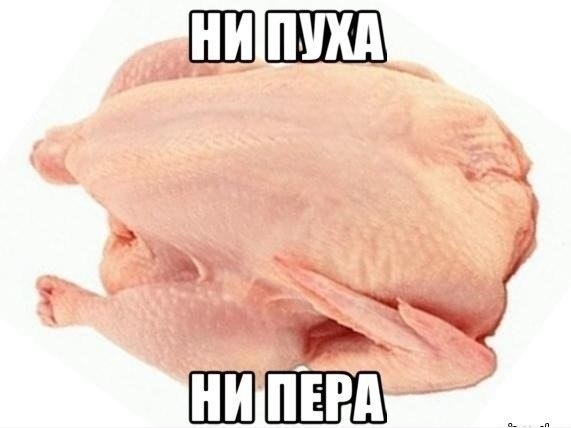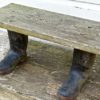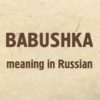Ни пуха, ни пера!
How to wish good luck in a very Russian way
Hello everybody! Today we’ll cover three expressions well-known to every Russian. Stay with me and in the end of the episode you will be able to wish good luck in a pure Russian way, understand what it means when somebody commands to live long, and be able to cheer up someone who just hurt himself. Interested? Let’s get started then!
Всем приве́т.
Hello everyone!
Должна́ призна́ться, что гото́вя вы́пуски подкаста О́чень по-ру́сски, я сама́ узнаю́ мно́го интере́сного. Наприме́р, никогда́ не могла́ поня́ть, при чём тут пух и перья, когда́ ты хо́чешь пожела́ть кому́-то уда́чи? Одна́ко всё вре́мя каза́лось, что э́то ка́к-то свя́зано с пти́цами…
I must admit, I learn a lot of interesting stuff preparing the episodes of “Very Much Russian” podcast. For example, I could never understand, what does the wish of good luck have to do with fluff and feathers? But it always seemed to me that it was related to birds …
Оказа́лось, что не каза́лось. Когда́-то давным давно́, челове́к, отправля́ющийся на охо́ту, получа́л от окружа́ющих напу́тствие, смысл кото́рого, на пе́рвый взгляд, звучи́т совсе́м противополо́жно тому́, что охо́тник хоте́л бы услы́шать: “Пусть твои́ стре́лы летя́т ми́мо це́ли, пусть расста́вленные тобо́й силки́ и капка́ны оста́нутся пусты́ми, так же, как и ло́вчая я́ма!”. Как во́дится, счита́лось, что пожела́в челове́ку уда́чи напряму́ю, ты обяза́тельно сгла́зишь, поэ́тому всё жела́лось с то́чностью до наоборо́т, и буква́льно звуча́ло так: ни пу́ха, ни пера́ (пух обознача́л звере́й, перья – птиц). На что охо́тнику поло́жено бы́ло отве́тить в том же ду́хе: к чёрту!.
It turned out that it did not seem. A long time ago, a man going to hunt used to receive parting words the meaning of which, at first glance, sounded quite the opposite to what the hunter would like to hear: “Let your arrows fly wide of the aim, let your drag-net and traps will remain empty, as well as your pitfall trap”. As usual, it was believed that if you wish good luck directly, you are bound to “put the evil eye”, so everything was wished in an opposite way, and literally sounded: “neither fluff nor feather” (fluff meant animals, feathers meant birds). The hunter was supposed to respond in the same spirit: “to the devil!”.
С тех пор, ни пу́ха, ни пера́ – обы́чное напу́тствие ка́ждому, кому́ не помеша́ло бы немно́го уда́чи: студе́нтам и шко́льникам пе́ред экза́менами, соиска́телем рабо́ты пе́ред собесе́дованием и т.д. Отвеча́ть же на э́то пожела́ние, как и в дре́вние времена́, поло́жено к чёрту!, ина́че уда́чи не вида́ть. 🙂
Since then, “neither fluff nor feather” is a usual wish to anyone who could use a little luck: to students and school kids before the exams, to job seekers before the interview, etc. You have to respond to that wish in the same way as the ancient people did: “to the devil!”, otherwise you are not to have good luck. 🙂

Ещё одно́ выраже́ние в перевёрнутом смы́сле – приказа́л до́лго жить, означа́ющее, что кто-то умер. Объясне́ние тут просто́е: умира́ющий, благословля́я родны́х, завеща́л (прика́зывал) им до́лго жить. С тех пор и повело́сь подменя́ть одно́ выраже́ние други́м. Приказа́л до́лго жить мо́жно испо́льзовать не то́лько по отноше́нию к лю́дям, но и к веща́м, наприме́р:
Another expression in an inverted sense is “(he) commanded to live long” meaning that someone has passed away. The explanation is simple: a dying person when blessing his relatives bequeathed (commanded) them to live long. Since then, it’s common to substitute one expression for the other. “Сommanded to live long” can be applied not only to people but also to things, for example:
Мой телефо́н приказа́л до́лго жить.
My phone has died.
Ну и завершу́ я сего́дняшний вы́пуск фра́зой, кото́рую ка́ждый ру́сский ребёнок слы́шал, должно́ быть, деся́тки, а мо́жет быть и со́тни раз в свое́й жи́зни (в зави́симости от коли́чества ран и синяко́в, кото́рые ты успе́л зарабо́тать за беззабо́тные го́ды де́тства): до сва́дьбы заживёт. Призна́ться, когда́ ты расши́б коле́но и кто-то из взро́слых говори́т тебе́, что оно́ заживёт и́менно “до сва́дьбы”, звучи́т э́то не сли́шком ободря́юще, так как сва́дьба далеко́, а коле́но здесь и сейча́с. Тем не ме́нее, е́сли вы име́ете де́ло с русскоговоря́щими детьми́, фра́за мо́жет прийти́сь как нельзя́ кста́ти. 🙂
Wrapping up today’s episode I’ll explain a phrase that every Russian child must have heard dozens or maybe hundreds of times in their life (depending on the number of wounds and bruises that you manage to get during your carefree years of childhood): “it will heal before the wedding”. Frankly speaking, when you smashed your knee and some adult tells you that it will heal right before the wedding, it sounds not very encouraging because the wedding is far away and the knee is here and now. Nevertheless, if you are dealing with Russian-speaking kids, the phrase may come in handy. 🙂
Да, кста́ти, оказа́лось, что не каза́лось – э́то то́же крыла́тая фра́за, кото́рой та́кже мо́жно блесну́ть в подоба́ющем слу́чае.
By the way, “it turned out that it did not seem” is also a catchphrase that you can use to show off in an appropriate case.
На э́том я проща́юсь, береги́те себя́ и окружа́ющих и до но́вых встреч!
I’m saying goodbye here, take care of yourself and others and see you soon!
Subscribe to our basic newsletter and receive notifications about new episodes of Very Much Russian podcast.
Or subscribe to our premium newsletter to receive both the basic newsletter and all our previous podcast episodes, one by one, on a regular basis.
Today's vocabulary
- ни пуха, ни пера
Russian idioms[nee PU-ha nee pye-RA](lit. neither fluff nor feather) a wish of good luck to someone that's supposed to be answered with "к чёрту!" (lit. - to the devil) - приказать долго жить
Russian idioms[pree-ka-ZAT' DOL-ga zheet'](lit. to command to live long) to pass away (to break if about the things) - до свадьбы заживёт
Russian idioms[da SVAD'-by za-zhee-VYOT]it will heal before the wedding - оказалось, что не казалось
Russian idioms[a-ka-ZA-las' chto nye ka-ZA-las']it turned out it didn't seem (popular expression)












